Reportage
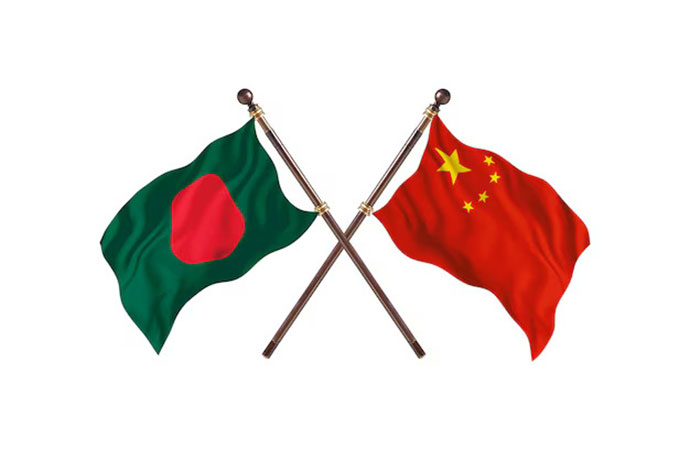
Many moons ago, Napoleon sounded a warning that was to prove prescient in terms of history. China was a sleeping giant, he noted, before adding: "Let her sleep, for when she wakes, she will shake the world. The reality today is that China has come of age in line with the Napoleonic prediction, and make no mistake, it is ready to play its role in reshaping the world in terms of everything from geopolitics to economics to international relations.
It always amuses me when it is said that Bangladesh and China are moving closer together as friends on the international stage. While this may be true to some extent in the context of modern nation-states, it means the sheer volume and breadth of contacts between the two peoples covering a vast terrain of history is often overlooked.
The story of the relationship between China and Bangladesh goes back deep into history. All of us are aware of the journey of Dipankar Srigyan, also known as Atish Dipankar who hailed from what is now Munshiganj, to China over two millennia ago, carrying Buddhism to a new frontier. Bangladesh, or Manjala as the Chinese refer to it, was a prominent location on both the two ancient Silk Routes maritime and overland - that acted as the inspiration for today's Belt and Road Initiative, Beijing's grand vision for a trade route connecting three continents that has been described as a 'Marshall Plan for the 21st Century'.
It means that while one reason for the warmth of our relations is that they are deeply rooted in history, even in present times, our two peoples perceive a commonality in terms of our destinies, which we see as intertwined. Many years ago, I had the privilege of interviewing the sage-like Wang Yi, the present Chinese Foreign Minister, in Beijing. It was in 2004, when he was the vice-foreign minister. One of the pearls of wisdom that he told me during that interview was that China's basic policy was to 'Look at history as a mirror to move forward'. The truth is our ties are civilizational and I urge stakeholders on both sides to do all they can to bring forward the full range of the relationship in their contemporary undertakings.
An example of that is Bangladeshis enthusiastic embrace of the BRI right from the very beginning, as something that holds enormous promise for enhancing the country's connectivity with nations near and far.
The Chinese have been involved in financing and helping to build some of the most Important megaprojects in the country's infrastructure sector, including the Padma Multipurpose Bridge and the Karnaphuli Tunnel, two marvels of engineering in their own right, and many other projects. During Chinese President Xi Jinping's landmark visit to the country in 2016, more than 20 agreements were signed by the two sides for further cooperation on a number of mostly infrastructure projects. Yet the most significant outcome of that visit was that the two countries agreed to elevate the bilateral relationship to a 'strategic partnership'.
It is within the ambit of that elevated status that the present relations between Dhaka and Beijing must be viewed. Since 2016, we have seen the two sides step up cooperation in the important field of defence most notably with the induction of two Chinese submarines as part of Bangladesh's naval fleet, followed by the country's first ever submarine base, that was built with Chinese help. When I interviewed Wang Yi in 2004, bilateral trade between our two nations had just crossed the billion-dollar mark for the first time. It has risen exponentially in the intervening years, and despite being somewhat halted by the pandemic that blighted economic performance in both countries in 2020 and 2021. China today remains firmly established as Bangladesh's number I trading partner, with two-way trade amounting to $24 billion.
According to data from Bangladesh's Commerce Ministry, Bangladesh exported goods to China worth $677 million and imported goods worth $22.90 billion in the 2022-23 fiscal. Although that reflects a lopsided trade deficit in favour of Beijing, it is hoped that the successful signing of a Free Trade Agreement can spur greater exports of Bangladeshi goods to China. We note that the current Chinese envoy in Dhaka, His Excellency Mr Yao Wen, who is obviously playing a leading role in these negotiations on behalf of his country, cited the examples of Mauritius and Cambodia, whose exports to China witnessed double-digit growth following the signing of their respective FTAs with Beijing. We wish the negotiators from both sides the best in working out a similar "win-win" agreement for Dhaka and Beijing.
Since initiating market-based reforms in 1978, China has witnessed what the World Bank terms "the fastest sustained expansion by a major economy in history", that has seen more than 850 million people lifted out of poverty. Although the rate of growth in China has eased in recent years, even a relatively sedate growth rate of 6% per year would still make it the most powerful engine of economic growth in the world for decades to come.
China's arrival on the world stage is a clear and satisfactory deterrent to the efforts of other powerful nations to play a dominant role, by shaping the entire world's destiny in their image. The Chinese have invested heavily in Africa and in significant parts of Asia. As an economic powerhouse, it has been determined to stave off any attempted hegemony in international trade by nations which previously enjoyed almost unfettered freedom in this sphere.
A few years ago, I had the privilege and honour to review a collection of President Xi's speeches and writings titled "The Governance of China". It provided for some fascinating insights into the thinking of perhaps the most important and influential Asian leader to have emerged for decades. In it, we find that he describes Chinese socialism (or "Socialism with Chinese characteristics") as highly efficient, but also as a work in progress-something for Chinese leaders to continue to study and tweak as they learn from experience. China's path to prosperity passes through its working class, and its people must constantly push themselves to ever-higher achievement and guard against indolence, Xi says.
At the same time, China's leaders must protect and cherish the working class, he insists, and nurture and honour their talent. Xi terms China's trade unions as "an important social pillar," that should embrace innovation. He is effusive in his praise for the "model workers" those dedicated, self-sacrificing souls who eschew money and notoriety, behave boldly, and think creatively. Through their toil and discipline, these exemplars turn mundane work into the extraordinary, and contribute to nation-building.
These are worthwhile lessons to bear in mind for any nation on the road to progress and development. It is a great source of pride and happiness to Bangladeshis as they see China's rise in the global scene. We know that the Chinese people have a dream, so do we in Bangladesh, as we endeavour to achieve our goal of middle-income status. It is my firm conviction that our aspirations will find the fulfillment we seek through sensitive and principled bilateral cooperation, that has been the hallmark of our relations throughout history.
Enayetullah Khan is Editor-in-Chief, United News of Bangladesh (UNB) and Dhaka Courier.








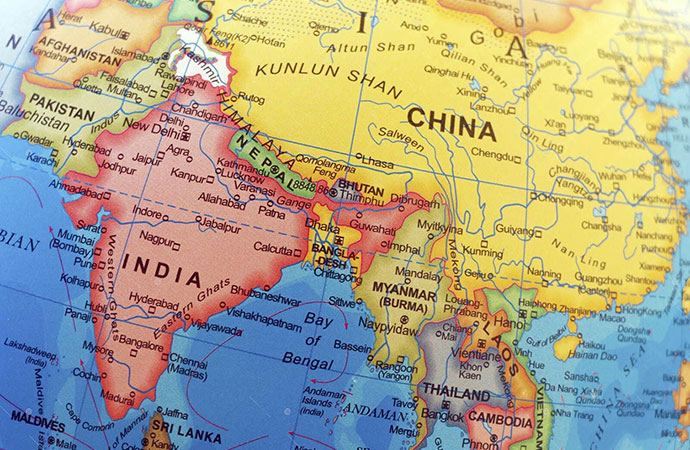
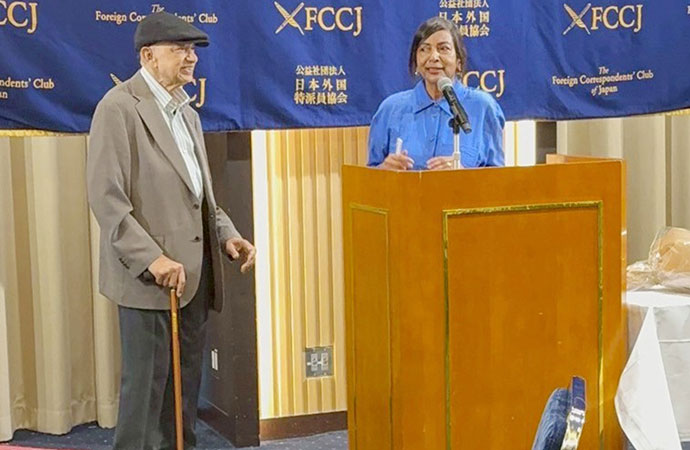
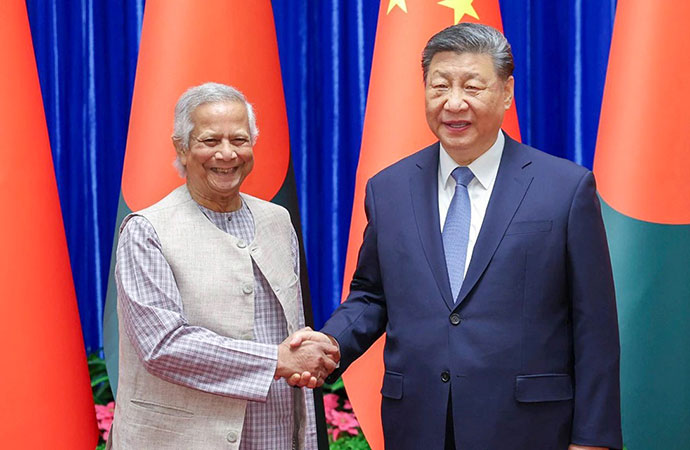



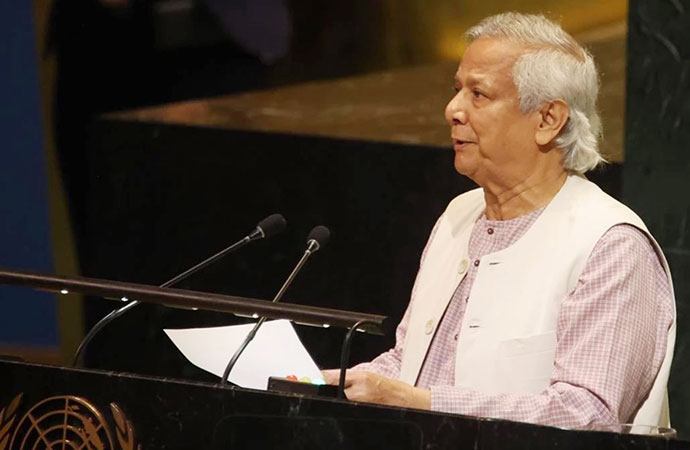










Leave a Comment
Recent Posts
Breakfast at Tiffany’s
Breakfast at Tiffany’s is an Old Hollywood film, released in 196 ...
Kalidas Karmakar’s ‘Holy War’ ...
Works of celebrated Bangladeshi masters, including Shilpacharya Zainul ...
All eyes on the Freedom Flotilla, as Shahidul Alam s ..
The disquiet in the Hills
Ocean Collective Summit 2025 Turning ‘What If’ into ..
Dhaka, Beijing should ‘deepen strategic partnership’ ..